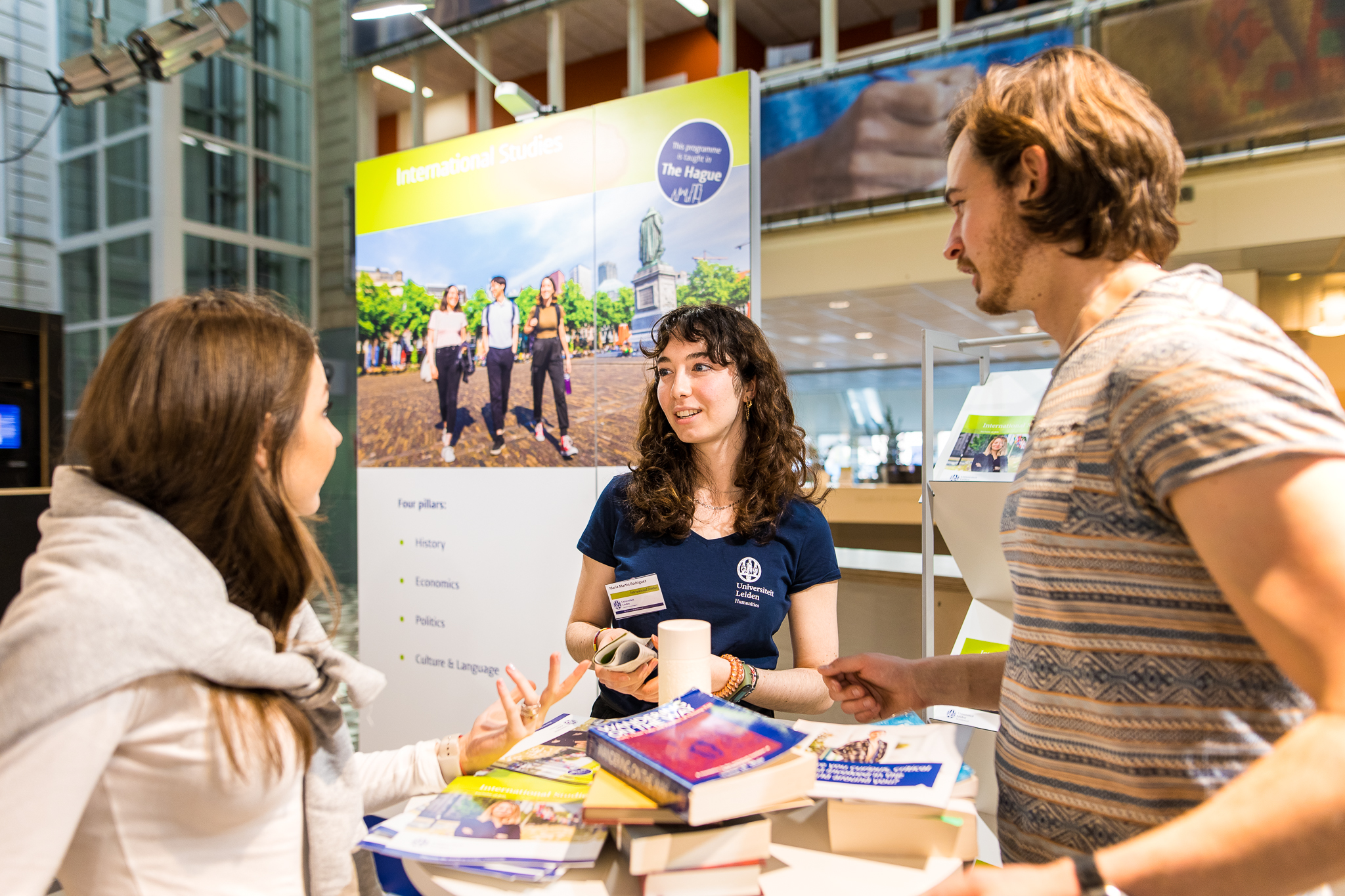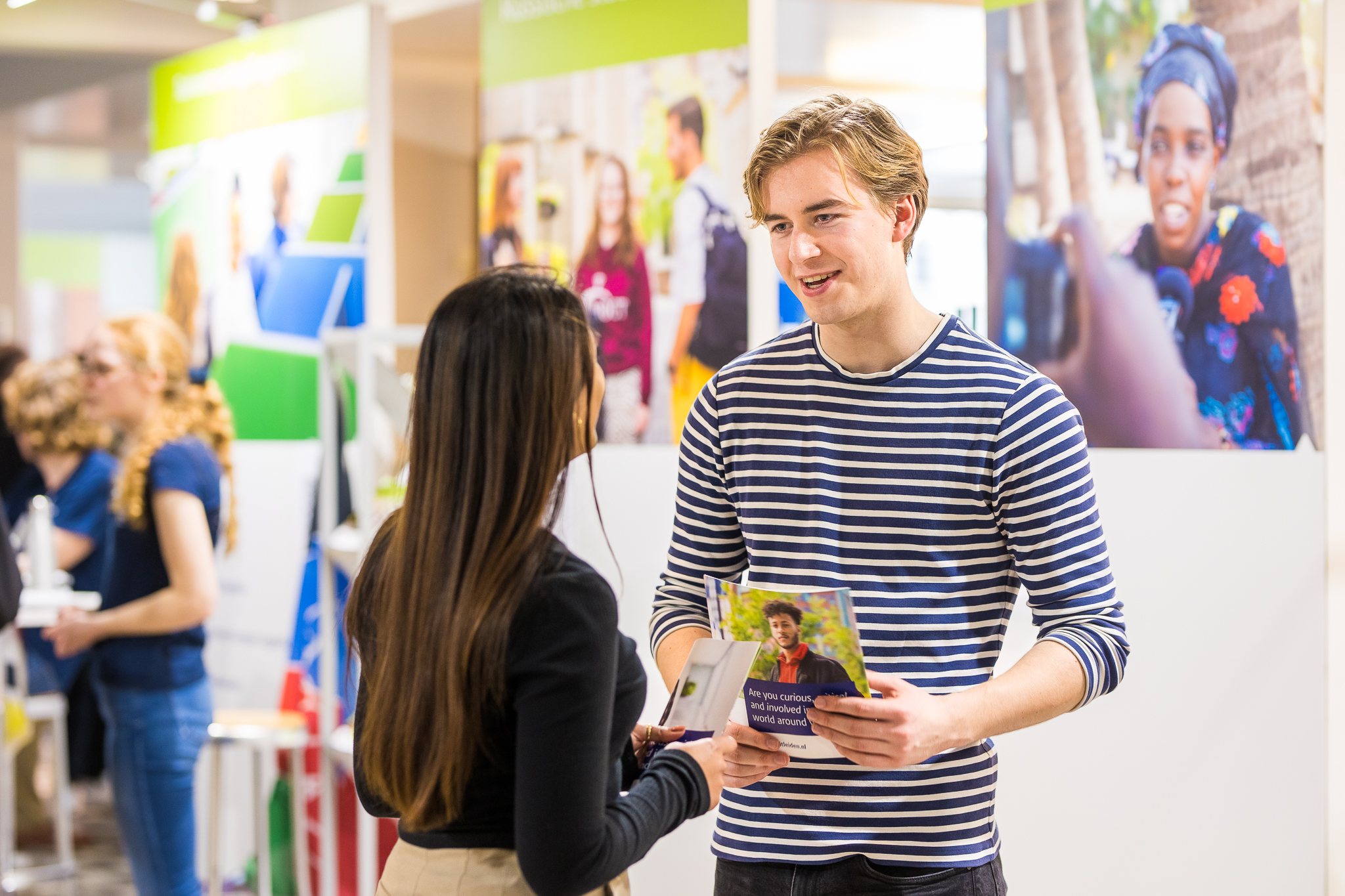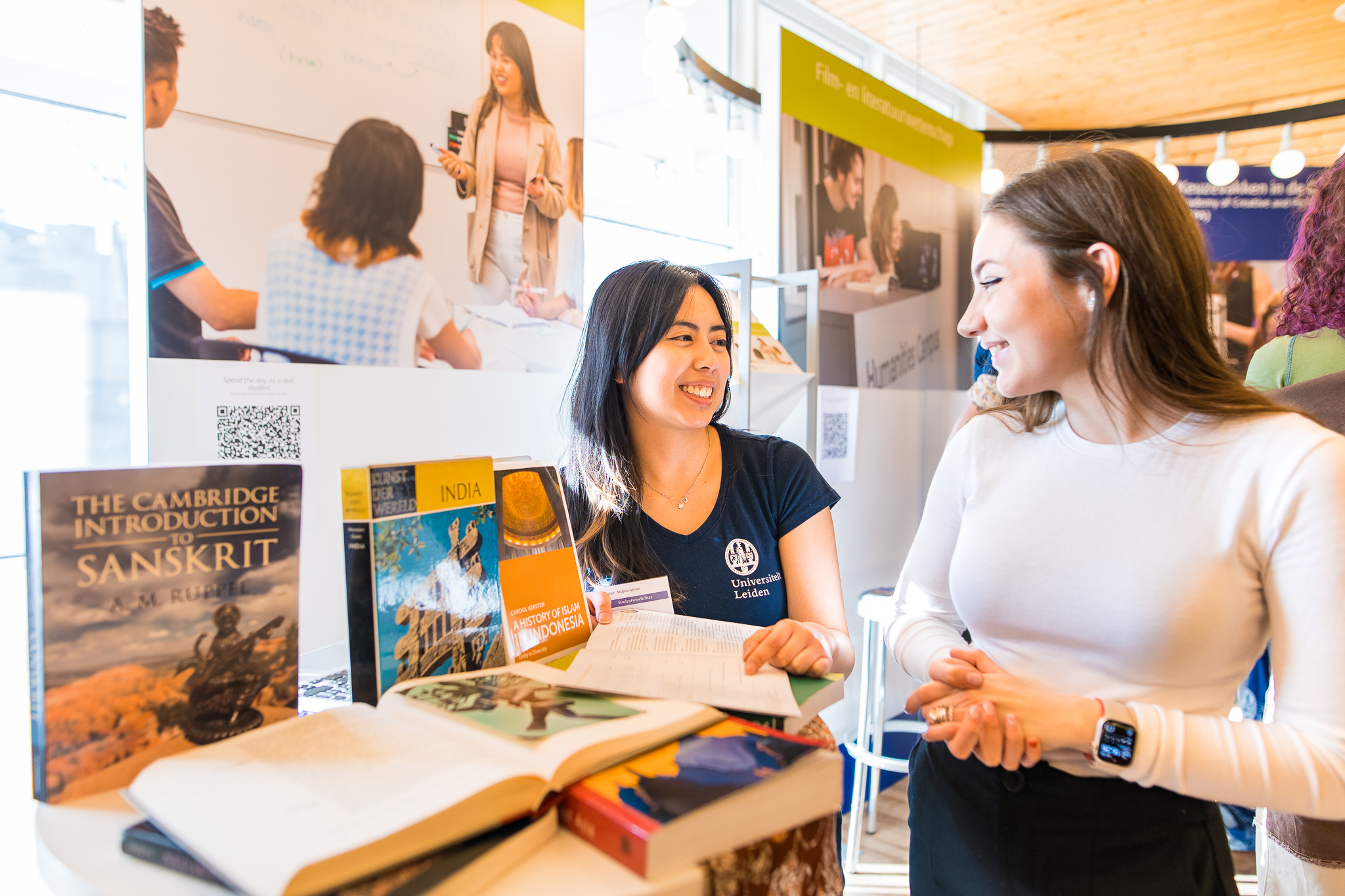
Successful Open Day for Humanities: ‘Here you feel how it really works’
Full lecture halls, a crowded information fair and a queue for coffee in the basement: during the Open Day, the Faculty of Humanities was inundated with curious prospective students.
Thousands of visitors roamed the information market in the Lipsius buildings on Saturday 25 February, where all humanities bachelor’s programmes were represented. Current students were on hand to answer questions and alumni enthusiastically talked about opportunities after their studies. Meanwhile, in-depth presentations were held by the various programmes in both Leiden and The Hague. A good choice according to pre-university student Quinten, who came with his parents and sister for the presentations of philosophy and Italian Language and Culture in the Lipsius building. ‘If you look on internet, you do get an idea of the possibilities, but here you feel how it really works.’
‘I think it’s great for prospective students to see right away where they are going to spend a lot of time’, agrees Mikki Vrijenhoek, who was present at the information market as an advisor for the history programme. ‘At the same time, I think it’s a pity that in this set-up you can’t spontaneously bump into a programme from another faculty: you often hear that prospective students have a broad orientation, and a personal conversation can be very helpful. That’s what I like best about the Open Day: that the student advisers are so enthusiastic about their studies and know how to convey this to the prospective students.’
Talk show
What was new this year was that prospective students received much of the information in the form of a talk show. Following a successful pilot at International Studies in 2022, prospective students could now watch a general video at home for about half the programmes, and then attend an in-depth panel discussion at the Open Day with a lecturer, study adviser and students, with moderator. ‘We had chosen the talk show option for the first time,’ Esther Op de Beek from Dutch Language and Culture looks back. ‘That was definitely an improvement over a presentation. Our moderator and student ambassador Iris Kole did an excellent job, the students involved talked enthusiastically about the programme and I think the format was interesting and lively for the audience.’
For Op de Beek, though, the interaction with the audience was ‘still a bit of a search’. ‘We let the audience ask questions in between, but perhaps we need to ask more specific questions ourselves to encourage interaction. Then it really becomes something more than a disguised presentation: on the other hand, that might not be what the audience expects from a talk show. That’s another point to discuss next time.’ The degree of formality is also still on the list for her: ‘So far, we have mainly shown the conversation about the programme content between teacher and student, and addressed each other with our first names, for example. That suits our programme, but certainly parents also expect some authority from us. This time there was a little less emphasis on the formal roles and professional attitude that are part and parcel of the university.’
On to The Hague
Formal manners or not, pre-university student Amelie was very happy with the information she received. ‘I had an interesting explanation,’ she said, sitting with her father over a cup of coffee and a muffin in the pop-up coffee corner in the basement of the Lipsius building. ‘I now understand better what you will be doing and what cultural studies in general are about. For now, I’m mainly looking at Film and Literature Studies because those subjects interest me.’ However, she’s far from sure about her choice. ‘I’m not great at making choices, so I need time to figure these things out. That’'s why we are also going to The Hague today: to look at International Studies, because that’s also something I’m interested in.’




